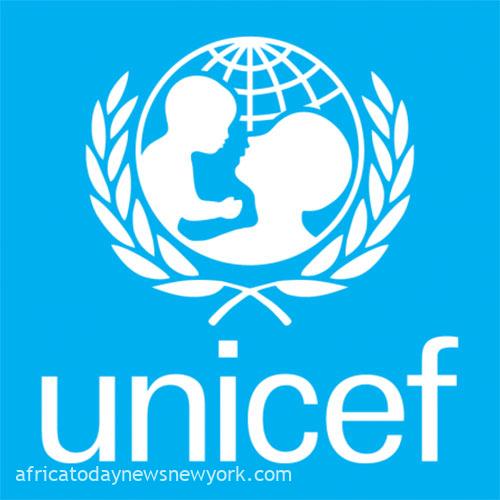A recent statement from UNICEF disclosed that 43 percent of Nigerian children were not registered at birth, rendering them legally invisible.
UNICEF disclosed, based on the 2021 Multiple Indicator Cluster Survey (MICS), that just 57.3 percent of births for children under five were officially recorded at the national level.
In a media dialogue held in Kano, Mr. Rahama Farah, UNICEF’s Chief of the Kano Field Office, made this disclosure. The dialogue was jointly organized by UNICEF, the National Population Commission (NPC), and the National Orientation Agency (NOA).
Farah lamented the fact that despite millions of annual child births in Nigeria, the country’s birth registration rates have not met the desired standards.
This results in Nigerian children being denied rights recognized by both the UN and the Nigerian government, leading to their legal invisibility and nonexistence.
According to him, ‘based on the Multiple Indicator Cluster Survey (MICS) 2021, 54.6 per cent of the births of children under five are registered in Kano State, compared to 57. 3 per cent at the national level. For the states of Katsina and Jigawa also supported by the UNICEF Kano Field Office, under-five birth Registration is as low as 23.6 percent in Jigawa, and 67 per cent, in Katsina state.’
‘The MICS 2021 survey also found that 2 out of every 3 mothers and caregivers of children aged below five years, whose births were not registered, did not know how to register births. The MICS 2021 puts percentage of children under 5 whose births are registered as ranging from as high as 89 per cent for the richest wealth quintile, to as low as 33 per cent for the poorest wealth quintile.’
Read also: It Is Time To Prosecute Bandits – UNICEF Tells Tinubu’s Govt
‘According to the United Nations Department of Economic and Social Affairs, Population Division, World Population Prospects 2019 (Online Edition) about 20,000 children are born every day in Nigeria, and the 2023 projected population for children under-1 is 7,465,417: and 35,597,131 for children under-5. This requires registration and certification of millions of children annually. If Nigeria must meet the SDG 16.9, concerted efforts to deal with outstanding barriers that have restricted universal birth registration coverage must be addressed.’
‘Addressing the challenge of inadequate or lack of awareness of the importance of Birth Registration, and where caregivers and mothers can go to register the births of their children, is therefore very urgent. It is important to communicate the innovative, digital birth registration procedure to motivate caregivers, parents, the general public, and everyone to embrace Birth Registration,’ Farah said.
UNICEF’s Chief detailed the organization’s efforts to collaborate with the government in improving birth registration in the state.
‘To ensure that the birth of every child Nigeria is registered, UNICEF is supporting the Government to strengthen coverage of birth registration during immunization services in health facilities, capturing children who are under one year of age as soon as they are born, during Maternal and New-born Child Health Weeks (MNCHWs), and through Supplemental Immunization Activities, using digitalized processes.’
‘In 2023, UNICEF is supporting the efforts of multi-sectoral partners in scaling up birth registration coverage in Nigeria and investing in safe and innovative technology to facilitate birth registration in Nigeria. This will contribute to timely, accurate and permanent records of births in Nigeria,’ Farah stated.
The State Director of the National Population Commission (NPC), Alh. Ismaila Hassan Dogo, announced that the commission is working toward electronically registering one million children in Kano before 2023 comes to an end.
Highlighting the dedicated efforts of the National Population Commission (NPC) to achieve its goal, the director mentioned the presence of 236 registration centers across all 44 local government areas in the state. He also outlined challenges, such as staffing shortages and low awareness among residents.
Mr. Samuel Kaalu, UNICEF’s Communication Specialist, clarified that the media dialogue’s purpose was to keep journalists informed about the importance of electronic birth registration.
He further stated that this knowledge would empower them to educate residents about the exercise’s significance and the obligation to register their children with the National Population Commission (NPC) as mandated by law.
